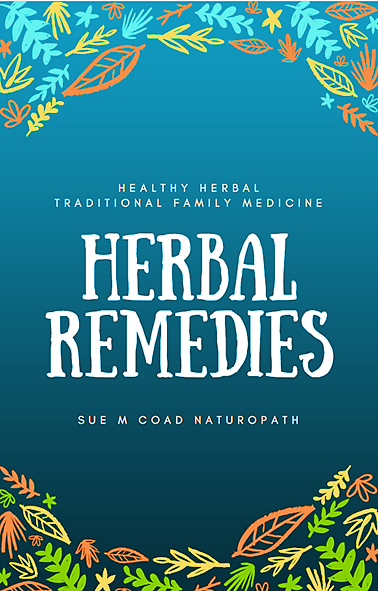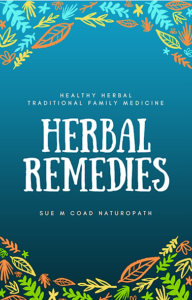
Materia Medica
Kidneys & Urinary System
Bearberry Uva Ursi Arctostaphylos Uva Ursi
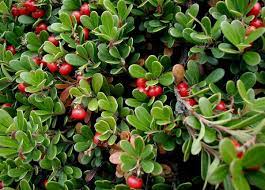
Phenolic antiseptic
Phenolic glycosides; resin; flavonoids; tannins; allantoin
Caution: Avoid in case of kidney involvement
Potent and selective urinary antiseptic; astringent effect in the lower digestive tract; tonic; demulcent, soothes, tones, strengthens urinary membranes; oxytocic (uterine contractions) in large doses; BHP specific – acute catarrhal cystitis with dysuria and acid urine; suitable for urinary tract infections; chronic vesical irritation; chronic urethritis; haematuria; enuresis; gravel; kidney or bladder ulceration; pyelitis; chronic kidney problems; stress incontinence; lithuria (high concentrations of uric acid in the urine)
Buchu Barosma betulina
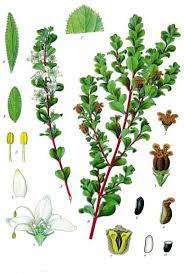
Antiseptic diuretic
Glycosides; flavonoids; resin; volatile oil; silica; mucilage
Urinary antiseptic; diuretic; aromatic; stimulant; diaphoretic; carminative; BHP specific – acute catarrhal cystitis with Yarrow, Cough grass;
indicated for use in chronic inflammation of bladder; all urinary and prostatic infections, mucopurulent discharges, cystitis, urethritis, nephritis; vesico-renal irritations of elderly; painful micturition and pyuria; burning urination; incontinence of urine; dropsy; gravel; stimulating, encourages function; tonifying, nourishes, builds up, strengthens the tissue;
key words, all urinary and prostatic infections (one of the most efficient)
Gravel Root Eupatorium purpureum

Flavonoid/Anti-lithic/Diuretic, primarily relaxing remedy
Flavonoid; volatile oil; resin; gums; starch; euparin; albumin
Diuretic; emmenagogue; tonic to pelvic viscera; soothing to urinary system; anti-rheumatic; anti-lithic; nervine; astringent;
indicated for cystitis; dysuria; haematuria; kidney stones; urethritis; prostatic inflammation; fluid retention related to kidney dysfunction
diuretic with soothing effect on the urinary system; tones the pelvic viscera in general;
BHP specific – renal or vesicular calculi
Horsetail Equisetum arvense
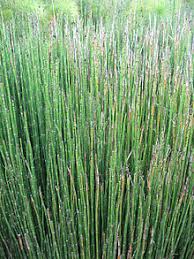
Flavonoids/Diuretic/Saponins/Metabolic
Silica; saponin; alkaloids; bitter principle; flavonoids; many minerals in abundance
Astringent; styptic effect on urinary mucosa, strong diuretic; restorative to damaged pulmonary tissue; supports inflammatory response; possible detoxifier; mild leucocytosis; local styptic and vulnerary; stimulant tonic; kidney and bladder organ remedy;
BHP specific for inflammation or benign enlargement of prostate, urinary incontinence, enuresis of children; suitable for cystitis with haematuria; urethritis; renal calculi; oedema of legs and catarrhal congestion of pelvic organs and tissues
principle action of horsetail is on the bladder, increases connective tissue tone and resistance;
key word; inflammation
Parsley Petroselinum crispum or sativum

Flavonoids/Diuretic
Volatile oil; flavonoid glycoside; starch; chlorophyll
Carminative; spasmolytic; diuretic; emmenagogue; expectorant; anti-rheumatic; antimicrobial; aperient; urinary tonic; hypotensive; antipyretic; possibly liver stimulant; uterine stimulant;
BHP specific – flatulent dyspepsia with intestinal colic; suitable for acute cystitis; dysuria; nephritis; gravel and stone; dropsy; prostate problems
Shepherd’s purse Capsella bursa-pastoris
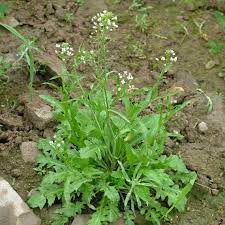
Flavonoids/Astringent diuretic
Saponins; mustard oils; flavonoids; resin; monoamines; alkaloid; sodium; Vitamin C; Vitamin K
Anti-haemorrhagic; urinary antiseptic; circulatory stimulant; diuretic; astringent; organ remedy for kidneys and bladder; tonic to pelvic organs; stimulates contractions during childbirth;
BHP specific – uterine haemorrhage; suitable for system urinary infections; urinary calculi; haematuria; urinary catarrh; vesico-renal irritation; enuresis, infantile bedwetting, incontinence with Agrimony; cystitis; ulcerated bladder; congested kidneys and bladder; dropsy
Classic indication for prescription, heavy urine, characterised by sediment, gravel, sandy sediment, particularly with a brick dust sediment, comparable to a porcelain-coloured sediment in the urine; haematuria with Beth Root; infection with Uva-ursi or Buchu; stones or calculi with Gravel Root; anti-inflammatory, with Cornsilk and Horsetail;
key word; bleeding
Dandelion leaf Taraxacum officinale

Wet-the-bed
Bitter; Triterpenoids; Carbohydrates; coumarins; flavonoid; hydrolysed tannin; choline; minerals; vitamins; proteins
Effective, gentle diuretic; hepatic and digestive tonic; cholagogue; laxative; antirheumatic; alterative; bitter; cholagogue action is stronger in the root, diuretic action stronger in the leaf; suitable for digestive and urinary systems; liver tonic; anti-oedema
BHP specific – cholecystitis; dyspepsia; suitable for oliguria; any urinary problems; having sufficient potassium to make up for that leached out of the body in the diuretic process; applied to oedema, particularly of cardiac origin; urinary problems in general especially where worsened by the presence of oliguria (small production of urine)
Clivers Gallium aparine
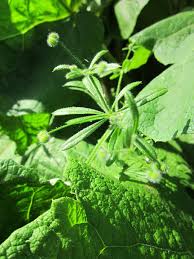
Iridoids; polyphenolics acids; anthraquinone derivatives
Eliminatory diuretic, particularly useful with alteratives to check skin eruptions; aperient; tonic; alterative; mild astringent; used particularly for enlarged lymph glands; cystitis; psoriasis; hypotensive.
Keyword; all conditions that indicate irritation, scalding micturition, dysuria, irritable bladder, cystitis; similar in action to Gravel root; fresh green state as a juice.
Juniper Juniperus communis

Renal vaso-dilator/Antiseptic
Volatile oil; condensed tannins; resin; bitter principle
Caution: avoid in pregnancy and kidney disease
Diuretic, increases the elimination of acid metabolites; antiseptic, similar in action to
Buchu; aromatic oil is powerfully antimicrobial on the urinary system; used historically for cystitis and urethritis;
Keyword; most importantly to address infections, gouty and other arthritic conditions associated with accumulation of acid wastes/metabolites
Celery Apium graveolens

Antilithic/Metabolic/Antiseptic/Hypotensive
Caution: Avoid in pregnancy
Volatile oil; bergapten; flavonoids; fixed oil
Increases elimination of uric acid and possibly other acids; urinary antiseptic; digestive tonic and carminative; uterine stimulant; galactagogue; arthritic conditions associated with acidic accumulations and or urinary infections or calculi; gout;
Key word; cleanses, calms heals;
BHP specific – rheumatoid arthritis with mental depression
Hypotensive; antifungal (Potters)
Corn Silk Zea Mays

Saponins; volatile alkaloid; sterols; allantoin; tannins; resin
Diuretic with soothing influence on the urinary mucosa; soothing; complex chemistry;
Keyword; used in all urinary infections and calculi;
frees the circulation of urea; relieves cystic irritation; soothing for cystitis where there us a lot of burning; BHP specific, acute or chronic inflammation of the urinary system.
Combines well with Agropyron and Arctostaphylos in Cystitis; with Agrimonia and Equisetum in enuresis; with Aphanes(Parsley piert) and Eupatorium in phosphatic or uric acid gravel
Sweet Sumach Rhus aromatica
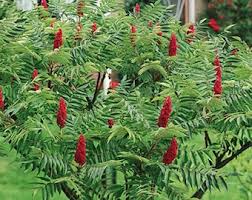
Astringent/Diuretic
Tannins; essential oil; resin
Unexplained chemistry, specific for urinary incontinence of childhood and aged; combines with Horsetail, Gentian and Agrimony for nocturnal enuresis; with Horsetail, Crampbark and Ephedra in urinary incontinence, marked by little bladder control; useful for polyuria; haematuria; haemorrhages; stimulating; toning; astringent; influences renal tubular reabsorption.
BHP Specific – Urinary incontinence of childhood and age
Orthosiphon stamieneus – Kumis Kutching Java Tea
Java or Indian Kidney tea, Labiate family – related to mint

little known about the plant’s constituents; contains a remarkable amount of potassium; Glycoside – orthosiphonin
Addresses the diseased kidney; contains lipophilic flavones, particularly sinensetin; specific effects on renal disease; promotes elimination of not only fluid, but nitrogenous substances and sodium chloride; increased non-protein nitrogen levels in the blood surest sign of renal insufficiency; possible indications, chronic nephritis; early stages of renal atrophy; consider to assist patients who are showing early signs of Renal Failure.
Golden Rod Solidago virgaurea

Saponin/Antiseptic
Saponins; flavonoids; tannins; bitter principle; essential oil; polyacetylenes
Stimulate the elimination of fluid; decrease in albuminuria, found to not be due to dilution of urine, plant directly increases renal function; (Weiss);
useful to address the failing kidney, regardless of the pathology
Antiseptic; diaphoretic; diuretic; carminative; anti-inflammatory; relaxant; anti-catarrhal; urinary antiseptic; BHP specific, low-grade inflammation of the naso-pharynx with persistent catarrh; indicated for cystitis
Saponins are antifungal against Candida species; transient hypotensive effect (Potters) in cases especially where associated with nervous tension and restlessness.
Saw Palmetto Serenoa repens
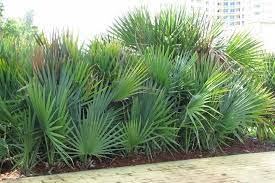
Diuretic/Steroidal Saponin/Tonic
Volatile oil; steroidal saponins; resins; tannins; fixed oil; possibly alkaloid
Diuretic/ urinary antiseptic; endocrine agent; anabolic agent; tone male reproductive system (particularly prostate); impotence; reduce congestive catarrhal conditions of the respiratory tract; relaxant; enuresis in children and the elderly; wasting of testes;
BHP specific; prostatic enlargement; indicated for cystitis, chronic or sub-acute.
Demulcents, relax and soothe the mucosa, may release spasms and assist free flow of urine, applicable to infections, irritations, and gravel/lithiasis.
Couch Grass Agropyron repens
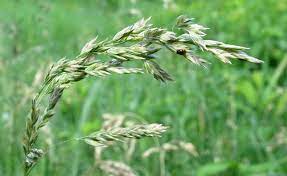
Demulcent/Anti-lithic/Diuretic
Mannitol; silica; mucilage; gum; vanillin; saponin; antibiotic minerals; glycosides
Reduce/hinder reabsorption of fluid in the normal aspect of nephron functioning; diuretic; anti-microbial; demulcent; anti-lithic; soothing diuretic, calming pain in the urinary tract;
BHP specific; cystitis with irritation or inflammation of the urinary tract;
Anticholesterolemic; used in urinary and bladder complaints, cystitis, nephritis; gout and rheumatism (Potters)
Marshmallow Althea officinalis
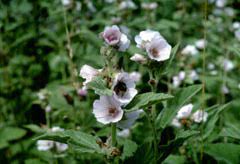
Demulcent/Diuretic
Mucilage (35% root 10% leaves); asparagin; tannins; phytosterol
Demulcent; expectorant (by reflex pharmacology) emollient to inflamed surfaces; diuretic; anti-lithic;
BHP specific, respiratory catarrh associated with digestive weakness
soothing curative influence on inflamed urinary passages (eg in cystitis or the symptoms of urinary stones) ( Mills)
Lithotropics and Lithotripsic, terms with the same meaning are agents that dissolve and discharge urinary and gallbladder stones and gravel, examples are Gravel Root, Hydrangea, Horsetail, Dandelion, Parsley
Hydrangea Hydrangea arborescens
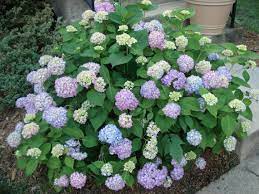
Lithotropic/Diuretic
Flavonoids; saponin; volatile oil
Diuretic; nephritic; used particularly for urinary complains including kidney and bladders stones and as a prophylactic; the extract has shown to be non- toxic (Potters)
BHP specific : Urinary calculi with gravel and cystitis:
Indications, Cystitis, urethritis, Urinary calculi, Prostatitis and enlarged prostate gland.
What is the active principle in Uva Ursi?
The Bearberry is a prostrate undershrub forming large colonies, a member of the heath family (Ericacea). The leaves contain 10% of the most important active principle, arbutin. This is split into glucose and hydroquinone in the kidney, the latter having an antiseptic effect on the urinary passages. This only happens, however, if the urine is alkaline, not if it is acid. (Weiss)
Pizzorno and Murray, famous naturopathic doctors in the USA claim the most useful herb in most cases of bladder infection is Uva ursi. Most research has focused on Uva ursi’s urinary antiseptic component, arbutin . The authors write that crude plant extracts are more effective medicinally than isolated arbutin. Uva ursi is reported to be especially active against E. coli and also has diuretic properties.
Appropriate herbal treatments
Enuresis
Is a term used to describe the involuntary passing of urine, with the most common form being bedwetting, or nocturnal enuresis by children. Nocturnal enuresis is occasionally caused by underlying disorders of the urinary tract, particularly infection, but in the majority of children, the problem is behavioural; there is often a family history.
Horsetail is BHP specific for urinary incontinence; enuresis of children
Herbs that are suitable to treat this condition could include:
-
Bearberry Uva ursi Arctostaphylos Uva ursi
-
Horsetail Equisetum arvense
-
Shepherd’s Purse Capsella bursa-pastoris
-
Sweet Sumac Rhus aromatica
-
Saw Palmetto Serenoa repens
Cystitis
Inflammation of the urinary bladder, often caused by infection (most often bacterium Escherichia coli) is often accompanied by frequent urination with a degree of burning. More severe cases are often accompanied by blood in the urine.
Bearberry Leaves, Uva Ursi is BHP specific for Acute catarrhal cystitis with dysuria and highly acid urine. May be combined with Althea Root, Agropyron, Zea and Agathosma (Buchu) in cystitis.
Amongst the herbs that are suitable to treat this condition are
Bearberry Uva Uri Arctostaphylos Uva Ursi
Buchu Barosma betulina
Clivers Gallium aparine
Corn Silk Zea mays
Couch Grass Agropyron repens
Golden Rod Solidago virgaurea
Gravel Root Eupatorium purpureum
Horsetail Equisetum arvense
Juniper Juniperus communis
Marshmallow Althea officinalis
Parsley Petroselinum crispum/sativum
Saw Palmetto Serenoa repens
Shepherd’s Purse Capsella bursa-pastoris

Haematuria
Is a condition in which the passage of blood in the urine may be either seen by the naked eye (frank) or urine microscopy (microscopic) or it may be detected by urine sticks. It is considered an important symptom as it is associated with transitional cell carcinoma, most commonly in the bladder, and kidney cancer. It may also be due to urinary tract infections, stone disease, or some forms of glomeruli-nephritis.
Shepherd’s purse, Capsella-bursa pastoris has a primary haemostatic action and promotes normalisation of blood flow and can be combined with Beth root in haematuria. The fresh plant preparation is the best for haemorrhages as the herb may contain some significant principles, such as aromatic constituents and mustard oil glycosides that may diminish in a drying or stored state.
Other herbs that can be considered when treating haematuria
Bearberry Uva Ursi Arctostaphylos uva ursi
Gravel Root Eupatorium purpureum
Horsetail Equisetum arvense
Sweet Sumach Rhus aromatica
Incontinence
Is a term that refers to the inappropriate involuntary passage of urine, resulting in wetting. Stress incontinence is the loss of urine on exertion (coughing, straining). It is common in women in whom the muscles of the pelvic floor are weakened after childbirth.
Urinary incontinence
Bedwetting and adult incontinence
Can be caused by a number of physical and psychological factors. As long as there is no organic defect or illness involved, it can be brought under control with the application of herbal treatment, even where it is due to loss of tone in the sphincter muscle of the bladder.
Urinary astringents work particularly well.
Horsetail
|
Equisetum arvense
|
2.0ml
|
Agrimony
|
Agrimonia
|
1.0ml
|
Sweet sumach
|
Rhus aromatica
|
2.0ml
|
-
FE 1:1 5ml TDS
-
This formula has been used in both nocturnal enuresis or adult incontinence.
Agrimony may be accompanied by or replaced by Gentiana lutea offering a bitter principle and a mild central nervous system stimulating effect .
Bitters
Have a stimulating effect on the sympathetic nervous system; the sympathetic component of the autonomic nervous system with a very feeble adrenaline affects, that increases muscle tone and sphincter tone.
Bitters stimulate the sympathetic component of the autonomic nervous system adequately enough to offer an additional amount of tone on the sphincter which may become sloppy, underdeveloped or too relaxed.
The Pharmacopoeia does implicate the use of Viburnum opulus (cramp bark) and Ephedra ®, in cases of urinary incontinence. Cramp Bark has a normalising effect on smooth muscle function. In some cases incontinence is brought about as a result of nervous activity, stress or tension. Cramp Bark may be useful as a nervine remedy, reducing spasm that can lead to incontinence, due to the stabilisation of the nervous system that feeds the smooth muscles. Ephedra ®, with the alkaloidal constituents, Ephedrine ®, causes the sphincter to contract. This action is especially noticeable when drinking Ma Huang tea. Historically, the treatment was ephedrine drops, however, it is stimulating when taken in large doses and causes insomnia.
Weiss’ bedwetting formulae:
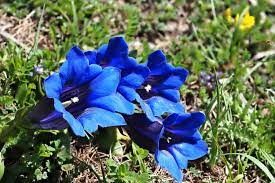
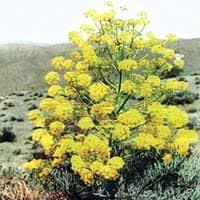
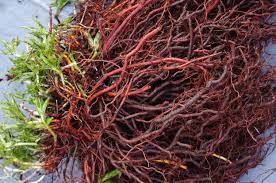

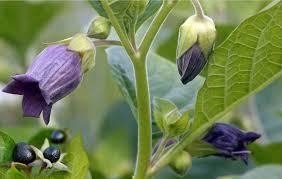
Gentian
|
Gentiana lutea
|
Bitter
|
20-20 drops tincture BID
|
Asafoetida
|
Ferula assa-foetida
|
Bitter Carminative/spasmolytic
|
20-30 drops tincture BID
|
Madder Root
|
Rubia tinctorum
|
Spasmolytic
|
tea
|
Sweet sumach
|
Rhus aromatica
|
Astringent and tonic mainly used for urinary incontinence
|
5-10 drops FE BID
|
Nux vomica
|
Strychnos nux vomica
|
Gentle tonic
|
Homeopathic
|
Belladonna ®
|
Atropa ®belladonna
|
Antispasmodic
|
5 drops equal parts with Nux in a little water at night ®
|

